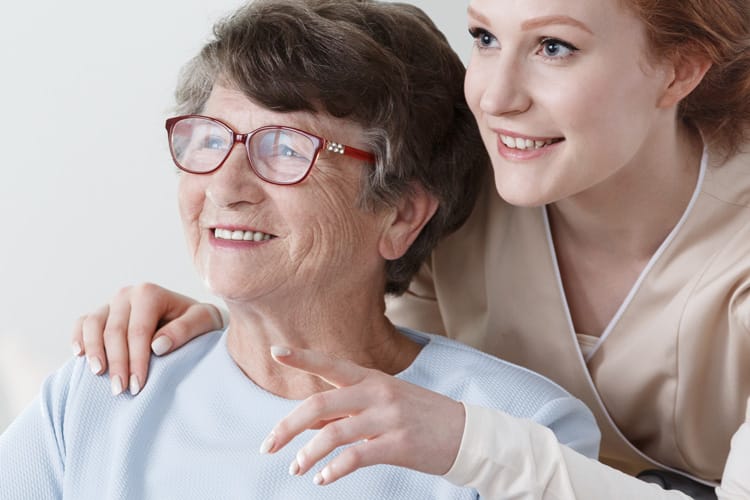Signs That Your Loved One Is Lonely
Signs that your loved one is lonely include anxiety, depression, and agitation. Loneliness can often lead to physical conditions such as high blood pressure, stroke and heart disease. Loneliness impacts physical health as well as mental health but does not always identify itself by a darkened room, stale odor and despondent expression. It’s not universal when identifying a loved one’s emotional state, but there are common traits. Below are the most common signs of loneliness.
Common Signs of Loneliness in the Elderly:
- Loss of appetite
- Disheveled appearance
- Lack of hygiene
- Avoidance of eye contact
- Social alienation
- Weight loss
Loneliness is Natural
Feeling lonely is not an illness, or an indication of a permanent ailment. In fact, it’s completely natural and common. So common in fact, some estimates say 20% of the total population have felt lonely within the past month. Due to the sheer prevalence, we need to be careful not to disregard loneliness as a serious issue.
The “Wallflower” and the “Social Butterfly” personalities can both experience loneliness and depression without displaying overt clues to their emotional state. Understanding the individual, and their normal personality traits, is important when identifying signs of loneliness. Some common signs of loneliness can simply mean Saturday night’s preference for some. Don’t confuse the desire to cozy up with a good book and minimal human interaction with social alienation.
Chronic vs Transient Loneliness
Transient and Chronic types of loneliness are linked to time perspective, or as it has also been referred to, state and trait. Transient loneliness is considered temporary and easily relieved. Chronic is thought to be more permanent and originating from within the person. Distinguishing between the two can be confusing. Below is a list of Chronic and Transient loneliness traits.
Signs of Chronic Loneliness:
- No deep emotional relationships
- Overwhelming isolation and alienation
- Low self-worth, low self-esteem
- Social interaction leaves one exhausted
- Constant state of depression
- Increased frequency and intensity of agitation
Chronic loneliness is serious and needs to be confronted as early as possible. Without treatment, it can impact physical health as well as mental health. Stress from feeling disconnected and alone can result in depression, anxiety and even cardiovascular troubles like high blood pressure, stroke, and heart disease.
Health Issues Related to Chronic Loneliness:
- Weakened immune system
- Sleep disorders
- Heart disease
- High blood pressure
- Depression
Loneliness in Seniors
In seniors, those above the age of 65, loneliness may derive from changes in one’s lifestyle or environment. Relocating to an unfamiliar retirement destination and the stress and anxiety of a big move may contribute to short periods of loneliness. Other factors may include declining physical abilities, Gerascophobia (fear of aging) or a sense of reduced independence.
Why are Seniors More Affected by Loneliness?
The senior demographic is the most susceptible to experiencing loneliness, isolation and depression. Loss of a spouse, close friend or relative, lack of mobility, and overall health are leading factors of loneliness. Isolation from social settings for extended periods of time can increase anxiety and nervousness, resulting in social alienation. For seniors, this affects seemingly day-to-day events such as Dr. appointments, family visits, social clubs, church groups and more.
Tips to Prevent Loneliness in the Elderly:
Social interaction is vital when confronting loneliness. For some, a reintroduction to small, intimate group settings is helpful, rather than crowds and large social events. Much like training for sport, repetitions and varied exercises specific to the muscles involved, will improve one’s ability. The more you can assimilate your loved one in social settings, building relationships, and fostering a sense of community, the healthier they become.
- Attend community events
- Become involved with a church
- Family gatherings
- Attend children’s plays & sporting events
- Dining out
- Senior exercise groups
- Video chat, texting & emailing
- Play game nights

Humans are social by nature. We need to have deep relationships to thrive, when we pull away from social interaction, our bodies respond in unhealthy ways. If you have a loved one suffering from loneliness, depression or isolation, it’s imperative to regularly communicate with them, involve them in social activities and be there when they need you. Depression can quickly escalate into severe health risks and speaking with a doctor to develop a plan of action may be the best option. Contact one of the organizations below for additional guidance and support:
- The Samaritans: (877) 870-4673 (HOPE) | https://www.samaritans.org/
- A Place of Hope: 1-888-771-5166 | https://www.aplaceofhope.com/
- MentalHealth.gov
If you’re looking to move a loved one into a retirement community to help combat isolation and loneliness, speak with one of our Lifestyle Advisors at (704) 246-1620 who can assist you in finding the community that is right for them. Our Advisors are focused on finding a solution that matches your needs and desires.
